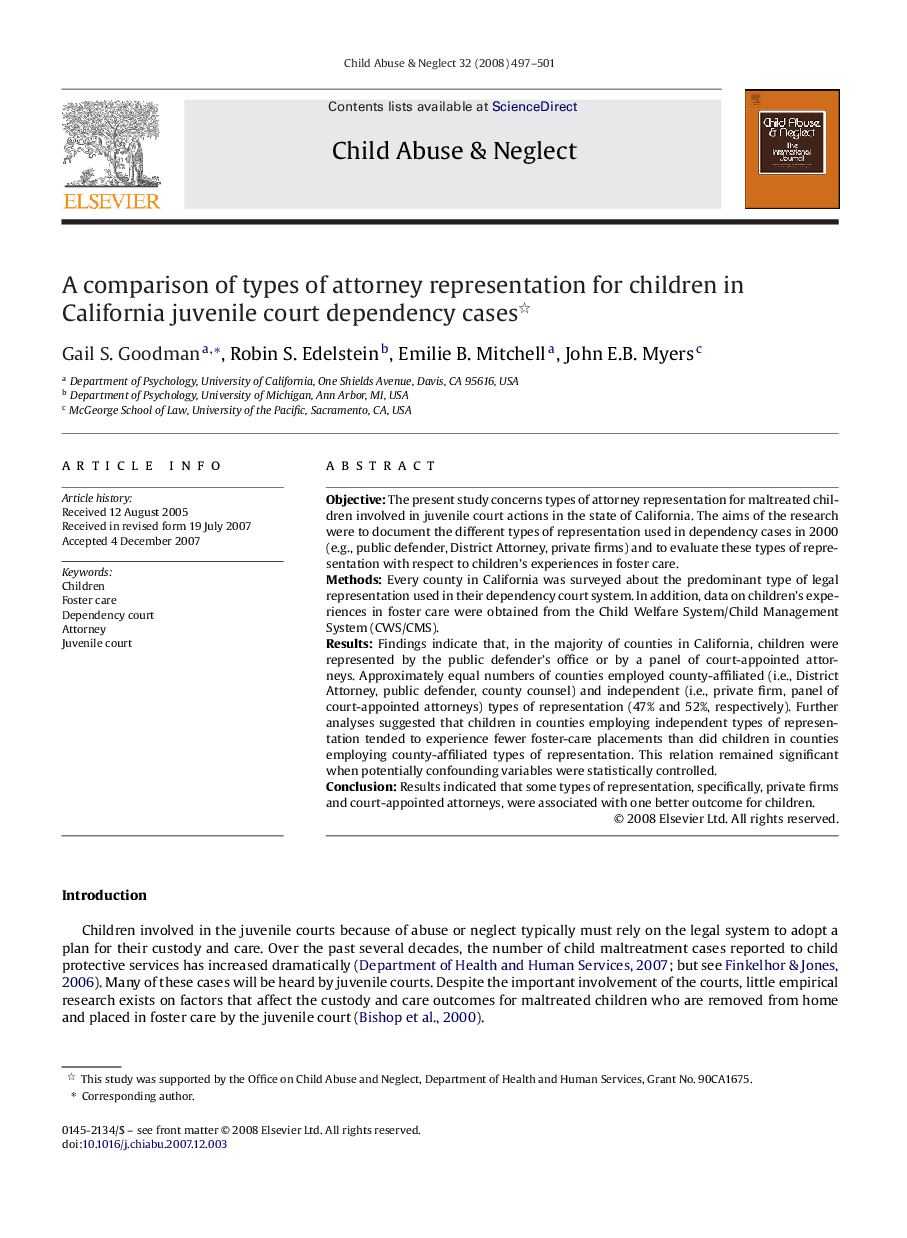| Article ID | Journal | Published Year | Pages | File Type |
|---|---|---|---|---|
| 345333 | Child Abuse & Neglect | 2008 | 5 Pages |
ObjectiveThe present study concerns types of attorney representation for maltreated children involved in juvenile court actions in the state of California. The aims of the research were to document the different types of representation used in dependency cases in 2000 (e.g., public defender, District Attorney, private firms) and to evaluate these types of representation with respect to children's experiences in foster care.MethodsEvery county in California was surveyed about the predominant type of legal representation used in their dependency court system. In addition, data on children's experiences in foster care were obtained from the Child Welfare System/Child Management System (CWS/CMS).ResultsFindings indicate that, in the majority of counties in California, children were represented by the public defender's office or by a panel of court-appointed attorneys. Approximately equal numbers of counties employed county-affiliated (i.e., District Attorney, public defender, county counsel) and independent (i.e., private firm, panel of court-appointed attorneys) types of representation (47% and 52%, respectively). Further analyses suggested that children in counties employing independent types of representation tended to experience fewer foster-care placements than did children in counties employing county-affiliated types of representation. This relation remained significant when potentially confounding variables were statistically controlled.ConclusionResults indicated that some types of representation, specifically, private firms and court-appointed attorneys, were associated with one better outcome for children.
